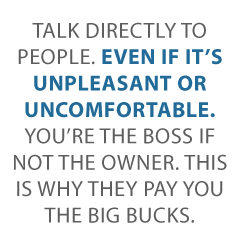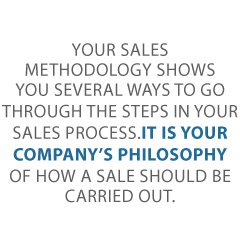Office interpersonal relationships got you down? Watching your employees snipe at each other? Is the gossip train speeding through your company? Then it’s time to avoid workplace drama. Plus, nine other excellent tips to get you going in this new year.
The Hottest and Most Brilliant Business Tips for YOU – Avoid Workplace Drama and More
Our research ninjas at Credit Suite smuggled out ten amazing business tips for you! Be fierce and score in business with the best tips around the web. You can use them today and see fast results. You can take that to the bank – these are foolproof! It’s time to avoid workplace drama and take your business to the next level.
Stop making stupid decisions and start powering up your business. Demolish your business nightmares and start celebrating as your business fulfills its promise.
And these brilliant business tips are all here for free! So, settle in and scoop up these tantalizing goodies before your competition does!
#10. Take Your Customers on a Journey
Our first jaw-dropping tip is all about a new process to close sales. G2 says your sales process is a kind of roadmap. It pulls your salespeople along from prospect to consideration to sale to after-sale nurturing. But your sales methodology is the ‘how’. Your sales methodology shows you several ways to go through the steps in your sales process. It is your company’s philosophy of how a sale should be carried out.
We really liked this article because it carefully lays out the various steps in a standard sales process. As a result, we highly recommend reading the article in its entirety.
In particular, we draw your attention to the section on after-sales nurturing. The word ‘yes’ isn’t the end. It is just the beginning.
#9. I Pledge Allegiance to the One, Unique Product – Yours
The next awesome tip is about making your product stand out. The Self Employed notes there are a number of ways to showcase your uniqueness. And, yes, you can do this even if your product is toothpaste or your service (yes, services can benefit from this article) is dog walking.
We truly loved the concept of, essentially, being human. Seriously, how many times have you read a company blog or About Us page which was just so much jargon?
So, be human and be approachable. It’s perhaps a little concerning that being human is a unique sales proposition. But there you have it.

If you are as passionate about succeeding in business as we are, please help us spread the word about how to take the plunge and save time and money – and your sanity! Avoid workplace drama and be more productive – and more!
#8. Kick Your Sales into High Gear
Our following life-changing tip concerns creating the ultimate sales kickoff. LinkedIn lays it all out for us.
Did you know that a good 29% of attendees rate their company’s sales kickoffs at a C or below?
Ouch.
A smart way to get your sales kickoffs out of the doldrums is to consider the ultimate goal. It’s to inspire people, right? And it’s also about getting everyone on the same page.
So, does that have to happen via a PowerPoint presentation where the presenter drones on and on while everyone checks their phone, or wishes they were?
Our favorite tip was to continue with learning after the kickoff is done. And that makes a lot of sense to us – reinforce what was said so it sticks!
#7. Time to Focus Like a Laser on Your Customers
For our next sensational tip, we looked at focusing on your customers. Startup Professionals says that customer expectations have changed radically in the past few years.
Some of this may be generationally driven, as Generation Z (born after 1996) is now outnumbering the millennials. Millennials are born after 1981.
But it’s also just a function of how markets have been changing. As customers demand more and more personalization and attention, they get it. And then, because they like it, they want more.
It is, without a doubt, a self-perpetuating cycle.
Analytics FTW
Oh, we do so love analysis. For the bottom line is, without measurements, we have no idea how anything is doing. Analytics are also great because they push us to create goals and attempt to achieve them. If the goal is for 5% more sales during the quarter, and we know how many sales were closed in the past quarter, then we know what’s expected for the current quarter. We know what success looks like. And that is very powerful.
There’s another aspect of this article we really liked.
Ask What Your Customers Want
What is the easiest way to find out what people want?
C’mon, this is not rocket science.
You ask.
So, ask.
#6. Save Your Money on Ads (for the most part)
This tip is so cool, and it works! Succeed as Your Own Boss tells us all about attracting customers without having to pay for advertising.
This is a great article and it really should be read in its entirety. Here’s our fave takeaway.
Don’t Just Throw Jell-O Against the Wall, Hoping It’ll Stick
Well, that’s not exactly how Melinda Emerson put it. This is actually a combo of two tips. One is to know your audience. And the other is to measure (our fave!).
Reading between the lines, this advice is virtually identical to what you should be doing with paid advertising.
The conclusion we draw from this is, treat free advertising like paid. That is, be intentional about it. And be organized so you’re not just playing around. Make every move count.
#5. It’s Time to Get Out of Middle School and Avoid Workplace Drama
Grab this mind-blowing tip while it’s hot!
It’s time to avoid workplace drama and get down to business.
Young Upstarts says there are a number of ways to derail the gossip train and avoid workplace drama.
We are so listening.
Model the Behavior You Wish to See
Also known as – be the change you wish to see in the world. Or, at least, at the office. You can avoid workplace drama by not encouraging it. And you can also avoid workplace drama by not spreading rumors.
We really loved this tip because it’s all about leadership. And, the truth is, anyone can do it. From the CEO to the cleaning crew, everyone can avoid workplace drama simply by stopping it and cutting it off at its knees.
Transparency Looks Good on You
This tip also really spoke directly to us, and it’s all because of something your intrepid blog writer remembers from, egad, a good 30+ years ago. So, it’s story time.
True Story
Drama, drama, drama.
 There never seemed to be so much of it in my life until I worked for a certain firm. This was the 1980s, so it was back when there was a clerical pool.
There never seemed to be so much of it in my life until I worked for a certain firm. This was the 1980s, so it was back when there was a clerical pool.
The firm did something which, in my opinion, was a disaster.
While hiring a clerical office manager is often a great idea, the person who was hired was just plain awful. They were, among other things, overly and unnecessarily secretive. Compounding problems was the fact that things were allowed to deteriorate for a long time.
As a result, secretaries left. In droves. It was hard to keep anyone on staff who could actually type.
Don’t laugh – this was a big, big deal back in the day.
So, this office manager once asked me – what do you hear about me? And yes, I heard stuff on occasion. But I said nothing. Why? It wasn’t because I disliked this person, although I did. It was more because the request was an improper one. I wasn’t in charge of anything. So, asking me about what the rumor mill said was just plain nuts.
It would have perpetuated the problem instead of being a way to avoid workplace drama.
I don’t recall anyone telling this person, although it’s been over three decades, so my memory may not be perfect. Perhaps someone else did. But either way, the inquiry didn’t help this person. Instead of trying to avoid workplace drama, they were fueling it. And instead of being open and transparent, they hid.
They were let go not too long after that. And so much of it had to do with not being transparent. Which leads me to ….
Encourage People to Carry Their Own Messages
This one also really resonated. Some of this relates to the above story. Essentially, instead of asking me what others were saying, this office manager should have asked people directly. Now, it’s entirely possible they wouldn’t have been truthful. But they should have asked. Having me carry water for her was an absurd notion. She was the boss and should have been confident enough to speak directly to the clerical staff.
Instead, by trying to use a go-between, she perpetuated the problem.
Talk directly to people. Even if it’s unpleasant or uncomfortable. You’re the boss if not the owner. This is why they pay you the big bucks.

If you are as passionate about succeeding in business as we are, please help us spread the word about how to take the plunge and save time and money – and your sanity! Avoid workplace drama and be more productive – and more!
#4. Overworking is no Good for You or Your Business
Check out this spectacular tip, all about avoiding becoming overworked. Work It Daily notes that overworking makes you a less effective worker.
But it can be easier to say you’ll stop overworking than to do it.
And the article smartly acknowledges there are people with financial goals who take on a side gig because they need cash in the short term. Plus, they may be trying to start a business. You may be one of those people or have been.
But then there’s another reason for overworking.
Time Management Matters
Quick true story here.
In the 90s, your intrepid blog writer worked for a person who. Could. Not. Stop. Yapping.
All the livelong day, they would talk to this one or that one. And it turned out to be fortunate that this boss didn’t like me. I was left alone!
As a result, I got my work done on time and left at 5, 5:30 most nights.
This person and their coterie did not.
They also complained (as a part of their constant gabfest) about being overworked.
Whatever this person wanted to do with their life, whatever goals they had for themselves outside of work – those were all sacrificed at the almighty altar of incessantly chattering.
Don’t be that person – and you won’t be overworked.
#3. Throw Some Water on Your Burnout
To go along with tip #4, it’s not your imagination: this winning tip can help you avoid burning out. Acorns tells us it’s all about four D’s.
Delete
Is the task really worth the time and money you’re putting into it? Not?
Then why the hell are you doing it?
Delay
You probably don’t have to do everything at once, the very moment you’re asked to. If so, then you have got to ask about priorities. Once you have the priorities down, guess what? You know what you can put off. And keep that in mind for the future. If that task comes up again, you just may be able to defer is again.
Diminish
You can diminish tasks by finding a shortcut to get them done. Even if it just saves you a keystroke, that will pay off if you have to perform a similar task over and over again.
Your intrepid blog writer firmly believes laziness is an evolutionary advantage. The basics of it are not to sit around and do absolutely nothing, though. Rather, the idea is to find faster and easier ways to do nearly anything.
After all, many of us have dishwashers. Are we lazy for not washing and drying our dishes by hand? Of course not! And by having a machine perform this task, that frees us up for all sorts of things. Those things can be everything from a task which cannot be performed by a machine (yet) to working on our relationships. Or binge-watching Netflix.
So, when you have a moment, consider what you do at work which takes a lot of time or feels repetitive. You just may be able to find a faster way of doing it.
Delegate
This one, we hope, is self-explanatory. You do not have to do everything. That way lies madness.
#2. Ready, Aim, Customer!
Our second to last unbeatable tip can give you a new perspective on how to reach your target audience. Noobpreneur reveals all about determining your target audience and how to best and most effectively reach them.
Target audience? Say what? But won’t everyone love, love, love my product or service?
Get real.
Sorry, that was harsh.
But consider this. Even water isn’t sold to everyone. And it’s branded, anyway. Some waters are flavored to appeal to dieters or to fitness enthusiasts. Others have snob appeal. And then there are folks (me, I’m guilty) who just open the tap and wonder why the heck anyone would want to pay for H2O if they didn’t have to, beyond paying for utilities.
But I digress.
Reaching an audience means defining that audience.
#1. Start Mastering Digital Marketing
We saved the best for last. For our favorite remarkable tip, we focused on digital marketing tips for you to win social, email, and search. Nextiva says the most underrated digital marketing is email. Yeah, good old email!
But let’s look at something kind of disturbing.
Google, Thy Name is Legion – and Maybe a Monopoly?
Let’s think about Google search for just a moment. And I mean Google, not search in general.
Google’s basic mission is to serve seekers what they are looking for. The first time, every time. And with the enormous number of webpages (that figure is in the trillions if not the quadrillions by now, folks) and the exceptional competition out there, Google has to make decisions every picosecond about what’s better and what’s best. Because it’s impossible for human beings to do this, it’s all done via algorithms.
Ya with me so far?
Here’s where it gets tricky.
Google says they don’t suppress results. And maybe they don’t. Let’s operate under the assumption that they don’t. After all, for Google, what does it matter if Coke or Pepsi gets the top search spot when someone searches for best cola?
But What If Google Gets into a Side Business?
Google could enter a market like hospitality or music or food service, let’s say.
What’s to stop Google from giving more credence to their own ridesharing service, or music streaming platform, or string of restaurants? Or whatever they decide to try their hand at?
Let’s even say everyone is 100% ethical and above-board.
What’s to stop Google’s search division from sharing inside information to another division of the company? Maybe even inadvertently? How many times do you get misdirected internal mail? I do, every single month.
Or what’s to stop Google from bending their algorithms to better serve how their side gigs have their webpages set up?
One thing the article doesn’t mention, but should, is that this is bound to draw the attention of the fine people at the Federal Trade Commission. And they won’t take so kindly to allowing this.
Before you say the government would never want or need to break up Google, think again. People said that about AT&T, over 35 years ago.
It’ll be fascinating to watch as this unfolds in the future.
And do check out the article for some more insights into digital marketing.
So, which one of our brilliant business tips was your favorite? And which one will you be implementing now?

If you are as passionate about succeeding in business as we are, please help us spread the word about how to take the plunge and save time and money – and your sanity! Avoid workplace drama and be more productive – and more!
The post Improve Your Business and Avoid Workplace Drama and More –10 Brilliant Business Tips of the Week appeared first on Credit Suite.








